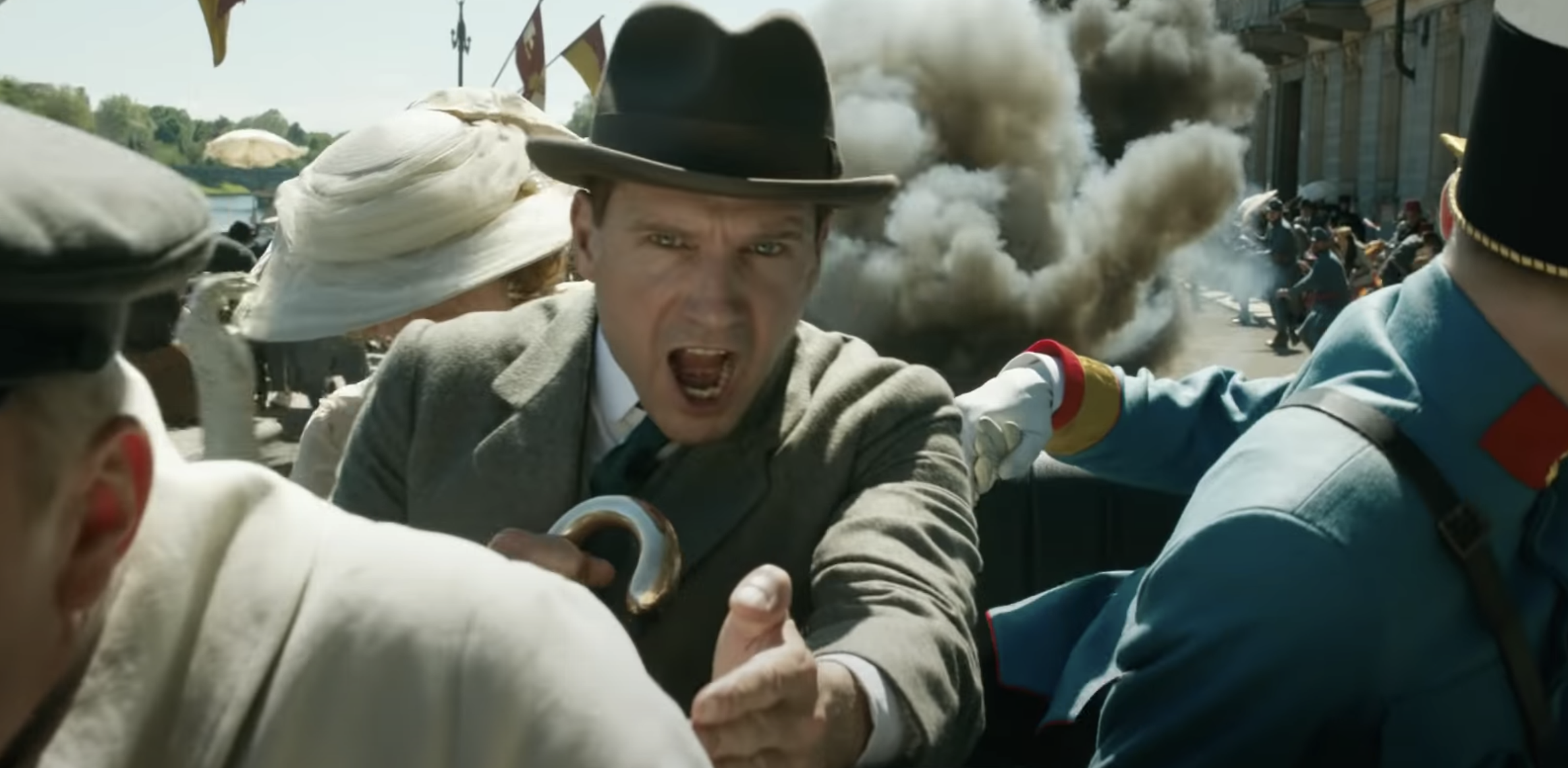The Forgiven
by George Wolf
When we first meet the idly rich people that populate the opening minutes of The Forgiven, they seem laughably idle and cartoonishly rich, more fitting for a satirical comedy than a searing sociopolitical thriller.
But it isn’t long before you appreciate the purposeful precision in writer/director John Michael McDonagh’s adaptation of Lawrence Osborne’s bestseller. The excess is this wretched for a reason, as the contrast between privilege and honor takes on a classic, Hemingway-esque flavor.
Flamboyant couple Richard (Matt Smith) and Dally (Caleb Landry Jones) are hosting an annual weekend bacchanal at their lavish retreat in the middle of the Moroccan desert. As numerous Westerners are attended by a staff of native Moroccans, unhappily marrieds Jo and David Henniger (Jessica Chastain and Ralph Fiennes) are making the long drive to the party.
The couple argues about which turnoff is correct, David takes his eyes off the road and strikes a Moroccan teen named Driss (Omar Ghazaoui) – killing him. Richard helps to smooth things over with the local police captain (Ben Affan), but word spreads to the villagers, and soon Driss’s father (Ismael Kanater) is demanding that David follow custom and make the long journey to the boy’s burial.
David agrees, setting up McDonagh’s fascinating examination of worlds colliding.
Jo instantly indulges the attention of Tom, a playboy financial analyst (Christopher Abbot), which gives the servants yet another affirmation of their guests godless natures. The wealth of the expats guarantees a life free of consequence, but David is learning that the Moroccans offer no such promises.
McDonagh (Calvary, The Guard) is such an insighftul writer, and he’s able to turn shallow first impressions into complexities as skillfully as he brings authentic depth to what easily could have been the magic brown people.
As a director, McDonagh’s touch here can feel sluggish in spots, but this first-rate ensemble (also including Abbey Lee, Mourad Zaoui and an excellent Saïd Taghmaoui) always keeps things compelling. At the top, Chastain and Fiennes slowly craft competing moral compasses, and The Forgiven lands as an intelligent reconsideration of a seemingly timeless lesson.







